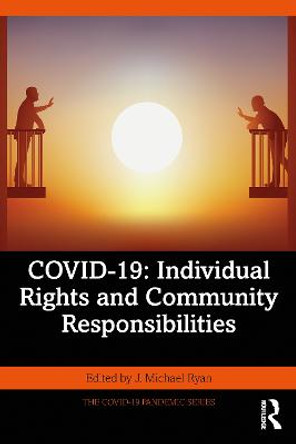Description
COVID-19: Cultural Change and Institutional Adaptations provides critical insights into the impact of the pandemic on the relationship between cultures and institutions.
The scholarship presented in this volume examines such important issues as the impact on health-care workers, changes in the interaction order, linguistic access, social stigma, policing, new understandings of social class, and the role of misinformation. Brought together, these insights can help us better understand both the micro- and macrochanges that have been brought about by the pandemic.
Drawing on the expertise of scholars from around the world, the work presented here represents a remarkable diversity and quality of impassioned scholarship on the impact of COVID-19 and is a timely and critical advance in knowledge related to the pandemic.
About the Author
J. Michael Ryan is an award-winning teacher who has held academic positions at top-ranked universities across five continents. He is currently Associate Professor of Sociology at Nazarbayev University (Kazakhstan) and has previously held academic positions in Egypt, Portugal, Ecuador, and the USA. Before returning to academia, Dr. Ryan worked as a research methodologist at the National Center for Health Statistics (which is part of the Centers for Disease Control and Prevention) in Washington, DC where he led multiple projects aimed at improving national statistical survey methodology. He is the author (with Serena Nanda) of COVID-19: Social Inequalities and Human Possibilities (Routledge 2022) and (co-)editor of more than 15 volumes, including COVID-19: Global Pandemic, Societal Responses, Ideological Solutions (Routledge 2021), COVID-19: Social Consequences and Cultural Adaptations (Routledge 2021), and Core Concepts in Sociology (Wiley 2019). He is also the founding editor of Routledge's The COVID-19 Pandemic Series.
Reviews
'This extraordinary volume edited by J. Michael Ryan examines very different and important issues regarding the social impact of the COVID-19 pandemic: consequences on health care workers, changes in the interaction order, the role of social stigma, paranoia and discrimination, ways of policing, social class and stratifications, the role of misinformation and fake news, the importance of culture, the role of the WHO, among others. The different edges of the problematic of social impact of the pandemic are analyzed in very consistent and original ways and each of the chapters contributes in a deeper understanding of the consequences of the COVID-19 crisis worldwide.'
Daniel Feierstein, Director of the Center of Genocide Studies, National University of Tres de Febrero, Argentina
'Taking readers inside the social and cultural changes fueled by the pandemic, COVID-19: Cultural Change and Institutional Adaptations brilliantly unravels the contradictions wrought by the pandemic whether in the travel sector, the economy, or the police. By deftly considering the acceleration of cultural change, each chapter offers a new discovery, the essays collectively gaining strength through their diverse and sometimes surprising perspectives. The book's impressive global reach yields valuable insight from the deepening of casteism hidden behind the veil of social distancing in India to the fast and slow violence against Asian people in America, to the stress of health care workers in Poland. Refreshing too is the consideration of consumers of misinformation in terms of counterculture and subculture. Collectively, this group of social scientists has done much not only to help us understand but to move beyond the world of COVID-19. This book is a must-read for all those grappling with the deep impact of the pandemic on our institutional lives.'
Irene Gammel, Canada Research Chair in Modern Literature and Culture and Professor of English, Toronto Metropolitan University, Canada
'This book warrants considerable attention to anyone interested in the experienced cultural shifts due to the COVID-19 pandemic. The general theme running throughout this book is that of cultural changes, followed by institutional reactionary measures and different modes of adaptation. Various chapters deal with important and timely topics on both micro and macro shifts impacting lived experiences, including changes in the understanding of social class and social stigma. These topics are tied together by a general interest in making sense of the 'syndemic', that is, an understanding of the social, cultural, economic, political and environmental factors of the pandemic, beyond medical implications.'
Valerie Visanich, Senior Lecturer in Sociology, University of Malta, Malta
Book Information
ISBN 9781032299051
Author J. Michael Ryan
Format Paperback
Page Count 216
Imprint Routledge
Publisher Taylor & Francis Ltd
Weight(grams) 540g






